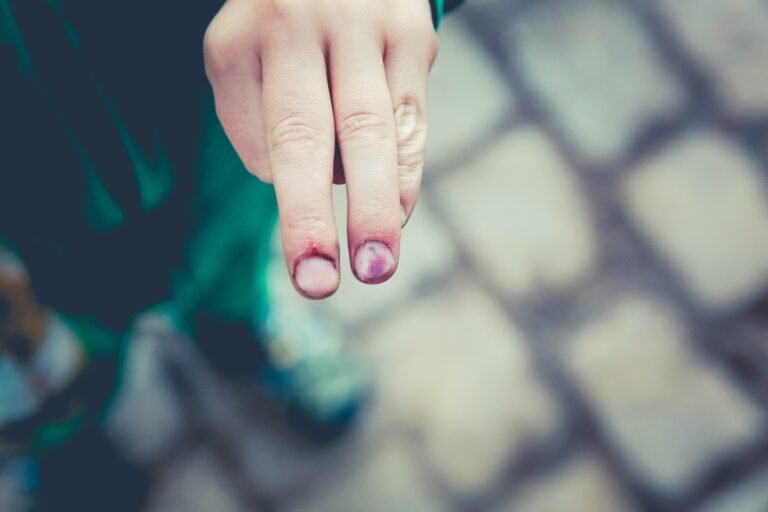Photo by Markus Spiske on Unsplash
Rideshare services such as Uber and Lyft have changed the way we get around, providing a more convenient option compared to traditional taxis and enhancing accessibility for many. However, like any mode of transformation, accidents can happen from time to time.
A study from the US National Bureau of Economic Research revealed that traffic fatalities have been rising by about 3% each year, and this trend is associated with rideshare services.
According to personal injury attorney Michael D. Cleaves, if you are involved in an accident while riding in a rideshare vehicle, you must understand your rights and options for filing a personal injury claim.
The aftermath of such incidents can be complicated, leaving you with questions about liability and compensation.
The process can be complicated but here’s what you need to know:
Legal Responsibilities of Rideshare Companies
Rideshare companies are mandated to guarantee the safety and well-being of passengers during their trips. This involves ensuring that vehicles are well-maintained, drivers are thoroughly vetted, and all traffic laws and regulations are followed.
According to a rideshare accident attorney in McDonough, rideshare companies must have adequate insurance coverage to protect passengers in case of accidents or incidents during the ride. Rideshare companies also have a responsibility to the general public.
This involves making sure that drivers have the right licenses and training, performing background checks, and creating a safe atmosphere for everyone on the road. Rideshare companies need to establish clear protocols to handle any complaints or safety concerns that may arise from passengers or the public.
Determining Liability in Rideshare Accidents
Liability in rideshare accidents typically hinges on various factors. The actions of the drivers involved, road conditions, and even potential third-party negligence are important in determining who’s at fault.
In rideshare accidents, the responsibility usually lies with the driver who was at fault for the incident. If the rideshare driver is found to be at fault, the rideshare company’s insurance typically takes care of the damages. However, if another driver caused the accident, then that driver’s insurance would be responsible for covering the losses.
Figuring out who is responsible in rideshare accidents can often be tricky due to the various people involved. It might take a detailed look into the situation to find out who is accountable for the damages and injuries that occurred.
Getting legal advice from a personal injury attorney who knows the ins and outs of rideshare accident cases can really make a difference in dealing with the complexities of figuring out who’s responsible and seeking the compensation you deserve.
Steps to Take After a Rideshare Accident
Following a rideshare accident, the most important thing is to make sure that everyone is safe and taken care of. After ensuring everyone’s safety, it is important to collect information. Share your contact information with everyone involved, such as the rideshare driver, fellow passengers, and any witnesses present. Capture images of the accident scene, focusing on the damage to vehicles, the state of the road, and any important road signs nearby.
Report the accident to the rideshare company. They’ll have specific protocols to follow, and it’s necessary to inform them immediately. Remember to file a report with the police, even if the accident seems minor. The police report can be valuable when dealing with insurance companies later on.
Seek medical attention, even if you don’t feel injured right away. Some injuries may have delayed symptoms, and a medical professional can assess your condition accurately. Consider consulting with a personal injury attorney to understand your rights and options for seeking compensation.
Understanding Insurance Coverage for Rideshare Accidents
If you find yourself in a rideshare accident, the insurance coverage you have may differ based on the unique details of what happened. For instance, the insurance coverage may depend on whether the driver was on the way to pick up a passenger, actively transporting a passenger, or offline at the time of the accident.
Rideshare companies like Uber and Lyft typically provide insurance coverage for their drivers, which often includes protections for passengers and other vehicles that might be part of an accident. This coverage typically encompasses liability protection, uninsured/underinsured motorist protection, as well as contingent comprehensive and collision protection.
Being informed about the insurance policies of rideshare companies can help you determine the available coverage and take the necessary steps to file a personal injury claim if needed.
Factors Influencing Personal Injury Claims
Handling the aftermath of a rideshare accident involves understanding the various elements that can affect your personal injury claim. Here are some important factors that can influence the result and compensation of your claim.
One important aspect is figuring out who is responsible. Establishing who was at fault for the accident can determine which party’s insurance company will cover the damages. Knowing who is responsible helps streamline the claims process. Evidence such as witness statements, police reports, and camera footage can help support your case.
Another factor is the extent of your injuries. The severity of your injuries directly affects the value of your claim. Medical records, doctor’s evaluations, and prognosis reports are important in assessing the damages you’re entitled to receive.
The timeliness of your actions can impact your claim. Quickly seeking medical attention, reporting the accident to the rideshare company, and consulting with a personal injury attorney can strengthen your case and improve your chances of a successful claim outcome.
Conclusion
If you’ve been injured in a rideshare accident, you may be able to file a personal injury claim. It is important to understand the insurance coverage options for rideshare accidents and to think about all the factors that could affect your personal injury claim. If you’re feeling uncertain, reaching out for legal advice can really help and pursue the compensation you deserve for your injuries.

Daniel J. Morgan is the founder of Invidiata Magazine, a premier publication showcasing luxury living, arts, and culture. With a passion for excellence, Daniel has established the magazine as a beacon of sophistication and refinement, captivating discerning audiences worldwide.





